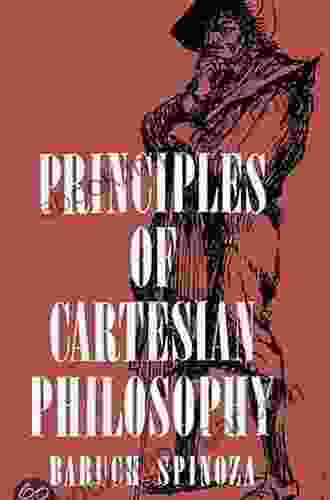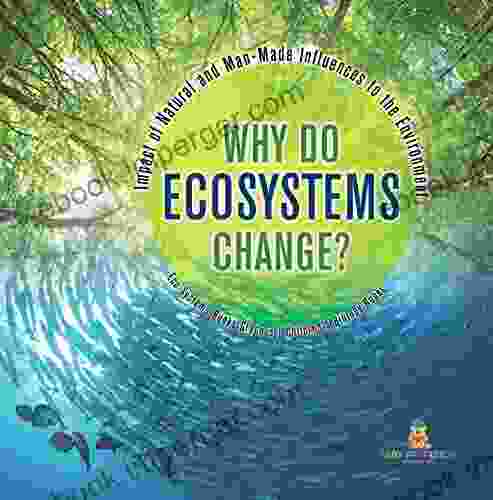Principles of Cartesian Philosophy: A Journey into the Mind and Beyond

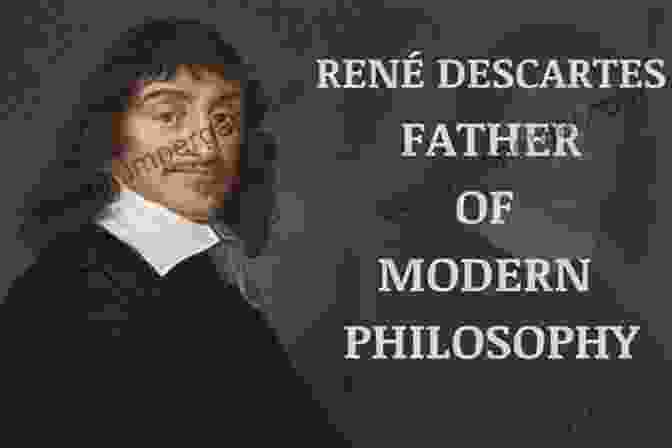
René Descartes, a towering figure of the 17th century, is widely hailed as the father of modern philosophy. His groundbreaking work, Principles of Cartesian Philosophy, laid the foundations for a new era of rationalism and scientific inquiry. In this comprehensive exploration, we will delve into the core principles of Cartesian philosophy, unraveling its profound impact on our understanding of the mind, reality, and knowledge.
4.7 out of 5
| Language | : | English |
| File size | : | 1591 KB |
| Text-to-Speech | : | Enabled |
| Screen Reader | : | Supported |
| Enhanced typesetting | : | Enabled |
| Word Wise | : | Enabled |
| Print length | : | 178 pages |
| Lending | : | Enabled |
The Method of Doubt: Unveiling the Foundations of Knowledge
At the heart of Cartesian philosophy lies the method of doubt. Descartes embarked on a systematic quest to question everything he had ever believed, seeking to uncover the indubitable foundations of knowledge. He stripped away all preconceived notions and sensory experiences, ruthlessly doubting their reliability. Through this radical act, Descartes aimed to isolate the fundamental truths that could withstand the relentless scrutiny of his skeptical inquiry.
Cogito Ergo Sum: The Immutable Ground of Certainty
From the depths of doubt emerged Descartes's most famous dictum: "Cogito ergo sum" - "I think, therefore I am." This seemingly simple statement carries immense philosophical weight. By recognizing the undeniable truth of his own existence as a thinking being, Descartes established the first unshakeable foundation of knowledge. The act of doubting itself proved the existence of the doubter, providing an irrefutable starting point for further inquiry.
Substance Dualism: The Mind and Body Problem
Cartesian philosophy posits a fundamental distinction between two distinct substances: mind and body. Descartes argued that the mind, the realm of thought and consciousness, is inherently different from the body, the physical and material realm. This dualistic view, known as Cartesian dualism, has sparked centuries of debate and remains a central topic in contemporary philosophy of mind.
Epistemology: The Nature of Knowledge and Belief
Descartes's epistemology, the study of knowledge, emphasizes the centrality of reason and innate ideas. He rejected the notion that knowledge is solely derived from sensory experience, arguing that certain fundamental truths, such as the existence of God, are known through the innate capacity of the mind. Descartes's rationalist approach paved the way for subsequent philosophical inquiries into the nature and limits of human knowledge.
Metaphysics: The Structure of Reality
Cartesian metaphysics is rooted in the concept of substance. Descartes posited that reality is composed of two fundamental substances: mind and body. He further argued that God, as a perfect being, is the ultimate guarantor of the existence and Free Download of the world. Descartes's metaphysical system provided a comprehensive framework for understanding the nature of being and the relationship between God, mind, and body.
Ethics: The Path to Virtue and Happiness
Cartesian ethics emphasizes the role of reason in guiding moral conduct. Descartes believed that virtue consists in acting in accordance with clear and distinct ideas of right and wrong. He sought to establish a rational foundation for ethics, free from the vagaries of subjective opinion or religious dogma. Descartes's ethical principles continue to influence contemporary discussions on morality and decision-making.
Natural Philosophy: The Laws of the Physical World
Descartes's natural philosophy, which encompassed science and mathematics, aimed to uncover the underlying laws governing the physical world. He believed that the universe is governed by mechanical principles and that all natural phenomena can be explained through the laws of motion and matter. Descartes's mechanistic view of the world laid the groundwork for subsequent scientific revolutions and the development of modern physics.
Legacy and Impact: Shaping the Course of Western Thought
The principles of Cartesian philosophy have had a profound and enduring impact on Western thought. Descartes's method of doubt revolutionized the pursuit of knowledge, establishing skepticism as a foundational tool for philosophical inquiry. His substance dualism ignited debates on the mind-body problem that continue to resonate in contemporary philosophy. His epistemology and metaphysics provided a framework for understanding the nature of knowledge and reality.
Descartes's natural philosophy inspired the development of modern science and mathematics, paving the way for the scientific revolution. His mechanistic view of the world influenced the work of subsequent scientists and philosophers, including Isaac Newton and Gottfried Leibniz. Descartes's legacy extends far beyond philosophy, shaping the development of fields such as psychology, cognitive science, and artificial intelligence.
: Unveiling the Profound Insights of Cartesian Philosophy
Principles of Cartesian Philosophy is a seminal work that has shaped the course of human thought for centuries. Descartes's profound insights into the nature of the mind, reality, and knowledge continue to challenge and inspire philosophers, scientists, and scholars alike. By exploring the core principles of Cartesian philosophy, we gain a deeper understanding of the foundations of modern thought and the enduring legacy of one of the greatest minds in human history.
4.7 out of 5
| Language | : | English |
| File size | : | 1591 KB |
| Text-to-Speech | : | Enabled |
| Screen Reader | : | Supported |
| Enhanced typesetting | : | Enabled |
| Word Wise | : | Enabled |
| Print length | : | 178 pages |
| Lending | : | Enabled |
Do you want to contribute by writing guest posts on this blog?
Please contact us and send us a resume of previous articles that you have written.
 Book
Book Novel
Novel Page
Page Chapter
Chapter Text
Text Story
Story Genre
Genre Reader
Reader Library
Library Paperback
Paperback E-book
E-book Magazine
Magazine Newspaper
Newspaper Paragraph
Paragraph Sentence
Sentence Bookmark
Bookmark Shelf
Shelf Glossary
Glossary Bibliography
Bibliography Foreword
Foreword Preface
Preface Synopsis
Synopsis Annotation
Annotation Footnote
Footnote Manuscript
Manuscript Scroll
Scroll Codex
Codex Tome
Tome Bestseller
Bestseller Classics
Classics Library card
Library card Narrative
Narrative Biography
Biography Autobiography
Autobiography Memoir
Memoir Reference
Reference Encyclopedia
Encyclopedia Kerry Pierce
Kerry Pierce Kevin Wilson
Kevin Wilson Kim Staflund
Kim Staflund Kevin D Burton
Kevin D Burton Kelsey Oseid
Kelsey Oseid Kia Hamadani
Kia Hamadani Kevin Walsh
Kevin Walsh Kevin N Robinson
Kevin N Robinson Kenneth A Johnson
Kenneth A Johnson Kenneth L Higbee Ph D
Kenneth L Higbee Ph D Khalid Akil White
Khalid Akil White Kevin P Kearns
Kevin P Kearns Kelly Thune
Kelly Thune Ken Stern
Ken Stern Kevin S Decker
Kevin S Decker Ken Worpole
Ken Worpole Kerrie Droban
Kerrie Droban Kevin Brown
Kevin Brown Kenneth L Williamson
Kenneth L Williamson Kevin Floyd
Kevin Floyd
Light bulbAdvertise smarter! Our strategic ad space ensures maximum exposure. Reserve your spot today!
 Haruki MurakamiFollow ·15.7k
Haruki MurakamiFollow ·15.7k Bobby HowardFollow ·3.4k
Bobby HowardFollow ·3.4k Leo MitchellFollow ·6.8k
Leo MitchellFollow ·6.8k Natsume SōsekiFollow ·17.6k
Natsume SōsekiFollow ·17.6k Ray BlairFollow ·7k
Ray BlairFollow ·7k Alvin BellFollow ·3.5k
Alvin BellFollow ·3.5k Jesus MitchellFollow ·14.4k
Jesus MitchellFollow ·14.4k Glenn HayesFollow ·5.4k
Glenn HayesFollow ·5.4k

 Chadwick Powell
Chadwick PowellDiscover the Secrets of Optimal Health with "The Healthy...
Preface: Embark on a Transformative...
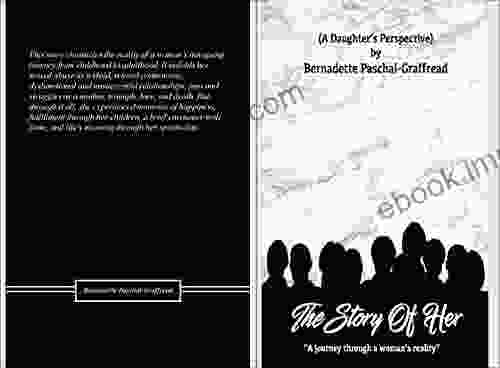
 Andres Carter
Andres CarterUnveiling the Profound Journey of Womanhood: A Daughter's...
In the tapestry of...
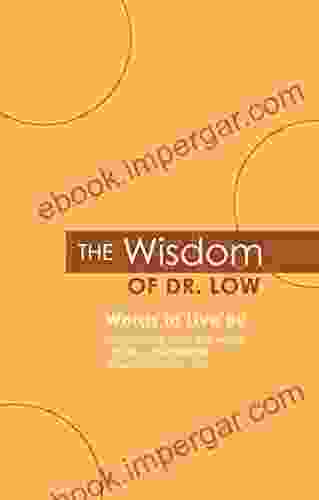
 Travis Foster
Travis FosterWords to Live By: The Essential Guide to Finding...
Words have the power to shape our...

 Chinua Achebe
Chinua AchebeThe Ultimate Guide for Men to Recover from a Breakup
: Breakups are never...
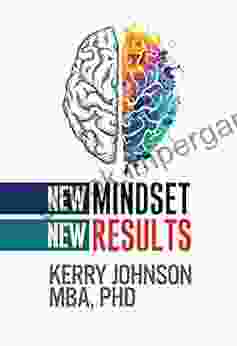
 Spencer Powell
Spencer PowellNew Mindset, New Results: The Proven Path to Unleashing...
About the Book ...
4.7 out of 5
| Language | : | English |
| File size | : | 1591 KB |
| Text-to-Speech | : | Enabled |
| Screen Reader | : | Supported |
| Enhanced typesetting | : | Enabled |
| Word Wise | : | Enabled |
| Print length | : | 178 pages |
| Lending | : | Enabled |


